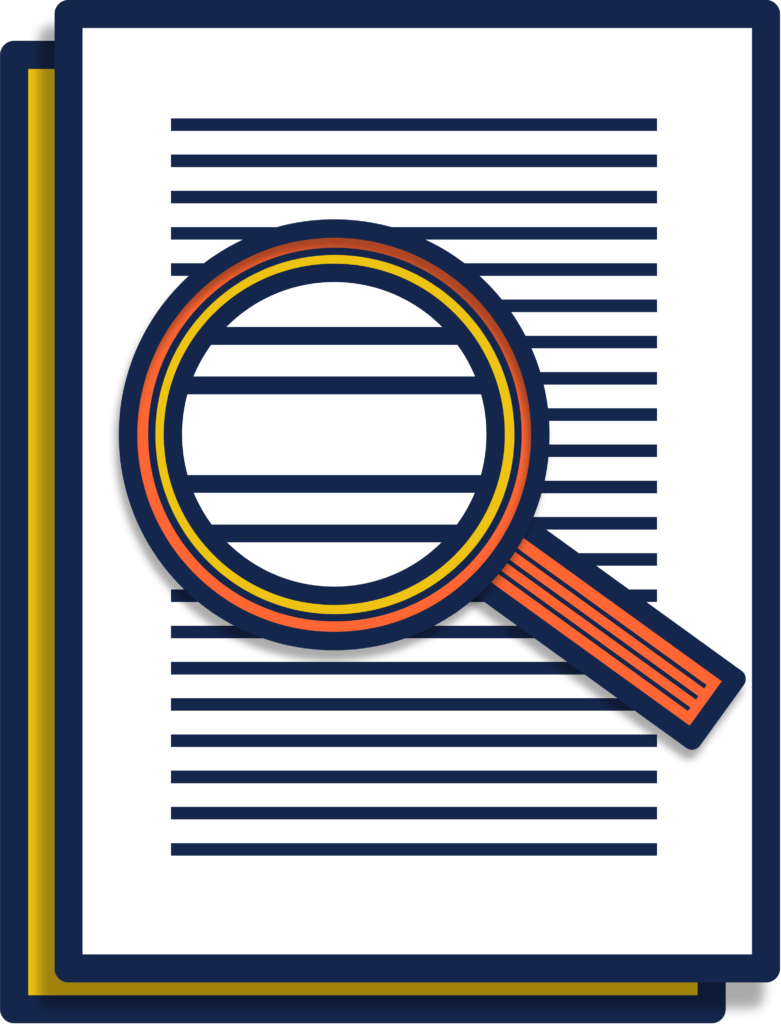Discovery – part of preparing for trial: “Discovery” refers to gathering information and documents from your spouse or from third parties so you can prepare for trial or prepare to negotiate a settlement. There is “informal discovery” and “formal discovery”. Informal discovery is where both parties cooperate with one another by voluntarily providing whatever information or documents the other party requests. Formal discovery is when your spouse will not voluntarily produce the information or documents you want, so you have to send them or a third party a legal document to force them to provide the information and documents.
Formal discovery is very time consuming. Formal discovery can be incredibly expensive if lawyers get involved because it is so time consuming. It is highly recommended that both parties cooperate with each other by freely exchanging information and documents so you can both avoid the time, expense, and aggravation of formal discovery. There are numerous formal discovery procedures. The laws regarding formal discovery are exceedingly complex and beyond the scope of this website. However, the following is a brief summary of the most commonly used formal discovery procedures:
Interrogatories
Interrogatories are written questions your spouse must answer under oath. There are two types of interrogatories: 1) Form Interrogatories; and 2) Special Interrogatories.
The Judicial Council puts out a set of Form Interrogatories for family law cases (FL-145). Click the “Court Forms” button on the homepage to go to our Court Forms Database where you will find the FL-145. If you look at the FL-145, you will see it consists of 21 questions that you can compel your spouse to answer. Fill out the caption on page 1 and, on page 2, check the boxes for whichever questions you want your spouse to answer. You can check all the boxes if you want or just some of the boxes. If you check box #10, you have to attach a blank Schedule of Assets and Debts (FL-142). After you have checked the boxes, make a copy of the FL-145 and any attachments. Then, complete a “Proof of Service By First-Class Mail” (POS-030). Click the “Court Forms” button on the homepage to go to our Court Forms Database where you will find the POS-030 form that you can fill out. Make a copy of the POS-030. Have a friend that is over 18 years old mail the FL-145 (with any attachments such as the FL-142) and a copy of the POS-030 to your spouse. Your spouse will then have 35 days in which to send you his or her answers to the Form Interrogatories. You do not file the FL-145 or the POS-030 with the court clerk. If you send your spouse Form Interrogatories, don’t be surprised if your spouse then mails you the same Form Interrogatories for you to answer.
Special Interrogatories are questions that you draft yourself and then submit to your spouse to answer under oath. You may want your spouse to answer particular questions that do not appear on the Form Interrogatories. If you want to send your spouse Special Interrogatories, you will need to draft a “Special Interrogatory” pleading. The Special Interrogatories must be typed on 28-line pleading paper. See “Drafting discovery documents” at the end of this page for assistance on drafting special interrogatories, including an optional template.
Special Interrogatories are not permitted to have subparts. This means your questions may not have multiple parts (a, b, c, etc.). Special Interrogatories may not include questions that are compound, conjunctive or disjunctive questions. This means you can’t have questions that ask for more than one piece of information by using words such as “and” (which is a conjunctive) or the word “or” which is a disjunctive. Make your Special Interrogatories clear and unambiguous. If the question is unclear or ambiguous, it will be objected to by your spouse. You can only ask 35 Special Interrogatories. If you want to ask more than 35 Special Interrogatories, you will need to include a declaration that briefly explains why it is necessary for you to ask more than 35 Special Interrogatories. If you Google “California Code of Civil Procedure 2030.050”, this statute has a template for the declaration you will need to include if you want to ask more than 35 Special Interrogatories. You do not file Special Interrogatories with the court.
Request for Admissions
A “Request For Admissions” can be used to compel your spouse to admit the genuineness of a specific document that you want to use at trial or to admit the truth of specific facts. If your spouse admits that certain facts are true in response to a Request For Admissions, you don’t have to prove those facts at trial. If your spouse admits in a response to a Request For Admissions that a particular document is genuine, then you do not need to prove the authenticity of that document at trial. There is a Judicial Council “Request For Admission” form (DISC-020), but it is not much more than a cover sheet. If you use the DISC-020, you will have to draft the set of facts you want admitted and list those facts on “Attachment 1”. You can also attach to the DISC-020 whatever documents you want your spouse to admit are genuine. Click the “Court Forms” button on the navigation bar to go to our Court Forms Database where you will find the DISC-020 that you can fill out. See the “Drafting discovery documents” at the end of this “Discovery” section of the website for assistance drafting an “Attachment 1” that you can attach to your “Request for Admissions”, including an optional template. We have also included an optional sample template for “Attachment 2” to be used for admissions regarding the genuineness of documents.
Please Note
You are limited to 35 requests for admissions. It is not 35 admissions of facts plus another 35 admissions regarding whether or not certain documents are genuine. It’s a total of 35. So, if you ask your spouse to admit 20 different facts, you can then only ask your spouse to make 15 admissions regarding the genuineness of documents. If you need to have your spouse admit more than 35 items, then you can do so, but you will then need to include a declaration that briefly explains why it is necessary for you to propound more than 35 requests for admissions. If you Google “California Code of Civil Procedure 2033.050”, this statue has a template for the declaration you will need to include if you want to propound more than 35 items.
Requests for admissions can’t include multiple facts, subparts or compound statements. Your “Attachment 1) must be on pleading paper. Requests must be clear. Make your requests concise. Limit each request to a single fact.
You do not file a “Request for Admissions” with the court.
Production of Documents
You can compel your spouse to produce documents that are in his or her possession or under his or her control by sending your spouse a “Request for Production, Inspection, And Copying Of Documents, Records And Things”. For example, you may want your spouse to produce copies of their pay stubs, retirement plan documents, credit card statements, loan applications, check register book, bank statements, etc.
There is no Judicial Council form for a “Request for Production, Inspection, And Copying Of Documents, Records And Things”. You will need to draft this document yourself. See the “Drafting discovery documents” at the end of this “Discovery” section of the website for assistance drafting a “Request for Production, Inspection, And Copying Of Documents, Records And Things”, including an optional template. The “Request For Production, Inspection, And Copying Of Documents, Records And Things” is not filed with the court.
A Request For Production must be typed on 28-line pleading paper. There is no limit on the number of documents you may ask your spouse to produce when you use a Request For Production.
Depositions
A deposition is when you have your spouse or a third party sit in front of you and answer whatever questions you want to ask. The “deponent” is under oath. You hire a stenographer that attends the deposition. The stenographer places the deponent under oath and then types up every word that is said during the deposition. You can also compel your spouse or a third party deponent to bring documents that are in their possession or under their control with them to the deposition so you can ask questions about the documents. A few weeks after the deposition, the stenographer gives you a transcript of the deposition. You pay the stenographer for appearing at the deposition and you pay the stenographer for the original transcript and a copy of the transcript. The cost of the transcript is going to depend on how many pages make up the transcript. You are billed per page.
If you want to take your spouse’s deposition, you need to send your spouse a “Notice of Taking Deposition” specifying the date, time, and place of the deposition and describing any documents you want your spouse to bring to the deposition. If you want to depose a third party, you not only have to send your spouse a “Notice of Taking Deposition” letting your spouse know you intend to take the deposition of a third party, but you also have to serve the third party with a deposition subpoena to compel them to attend the deposition (“Deposition Subpoena For Personal Appearance” SUBP-015, which you can find in our Court Forms Database).
The “Notice of Taking Deposition” is not filed with the court.
The “Notice of Taking Deposition” is not a court form. It is a document you have to draft yourself. See the “Drafting discovery documents” at the end of this “Discovery” section of the website for assistance on drafting a “Notice of Taking Deposition”, including an optional template.
If you Google “court reporting services” you will be able to find deposition stenographers in your area. Most court reporting companies will provide not only a stenographer, but also a conference room where you can take the deposition if you use their stenographer.
Deposition Subpoena For Production Of Business Records
This type of subpoena is used to compel a third party to produce copies of documents or other materials. For example, you may want your spouse’s employer to produce copies of payroll records and/or records pertaining to your spouse’s retirement benefits. You may want to subpoena bank records from each bank where your spouse has or had an account. A “Deposition Subpoena For Production Of Business Records” is a Judicial Council form (SUBP-010). Click the “Court Forms” button on the homepage to go to our Court Forms Database to find said form that you can fill out. If you Google, “subpoena preparation services”, you should be able to find a company that will help you draft the subpoena, serve the subpoena, provide required consumer notices, and obtain copies of the documents you want from the third party.
Discovery rules
There are all kinds of rules that govern formal discovery. There are rules about how soon formal discovery documents can be served. There are rules about how many requests can be included in certain discovery requests. There are rules about when discovery “cuts off” as you near your trial date. Discovery typically “cuts off” 30 days before trial (i.e., most forms of discovery must be completed 30 days before trial). These rules are set forth in lengthy statutes that pertain to each type of formal discovery. We have given you the most basic rules. If you want to know all the rules, you need to read the statutes that pertain to the particular type of formal discovery you wish to propound, and those statutes are set forth in the California Code of Civil Procedure.
 Drafting discovery documents
Drafting discovery documents
As set forth above, a number of formal discovery documents are not Judicial Council forms (i.e., Special Interrogatories; Request For Production and Inspection of Documents; Notice of Taking Deposition; etc.). You have to draft these documents yourself. You can go to the public law library in your area. A law library is different from a regular library. Usually, the law library will be located at or near the courthouse. Ask the librarian to direct you to the “form books” for California. You want to look at the “discovery” form books, preferably those in the family law section of the library. These books will show you sample formal discovery documents you can copy. The books will also explain, in detail, the different rules that apply to each type of formal discovery.
We offer, as an option for $20, the following sample formal discovery documents in a template form:
- Notice of Taking Deposition On Oral Examination and for the Production of Documents.
- Request For Production, Inspection, And Copying of Documents,
Records, and Things. - Special Interrogatories.
- Attachment #1 for a Request For Admissions and Attachment #2 for a Request For Admissions.
We offer you a sample of each document. You get all four documents for the $20. You will need to type over certain information on our sample forms, inserting your own name, address, phone number, case caption, case number, and other information specific to your case. You can edit our sample forms. For example, if you don’t want or need some of the documents we have listed on Exhibit “A” of our sample “Request for Production, Inspection, And Copying of Documents”, just delete those documents. If you want copies of documents that we did not include on our Exhibit “A”, then type in a list of whatever additional documents you want your spouse to produce.
After you edit whichever formal discovery forms you want, print them and then have a friend that is over 18 mail copies of your formal discovery documents to your spouse, including a completed Proof of Service form (POS-030) that you can find in our Court Forms Database. You keep the originals. If you wish to purchase the package of sample formal discovery documents, click the click the “Templates” button on the navigation bar and then click on “Discovery Documents”.


